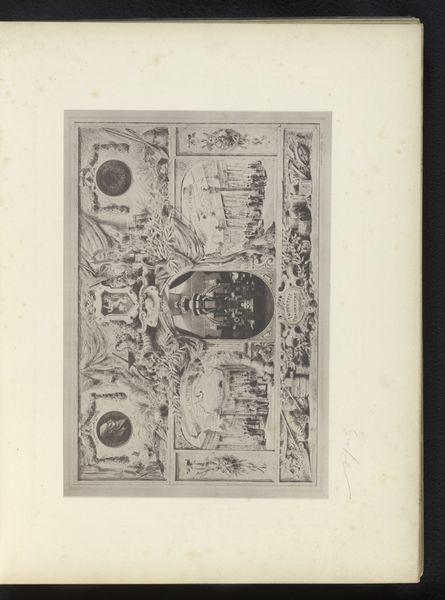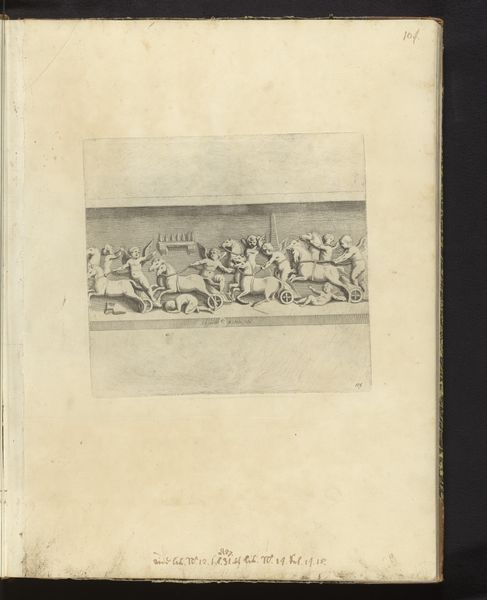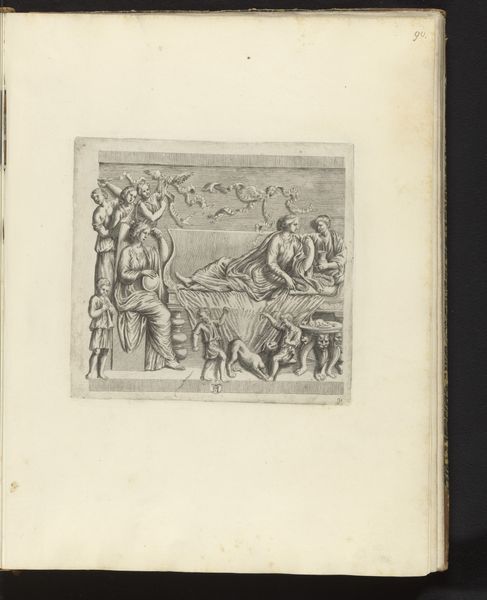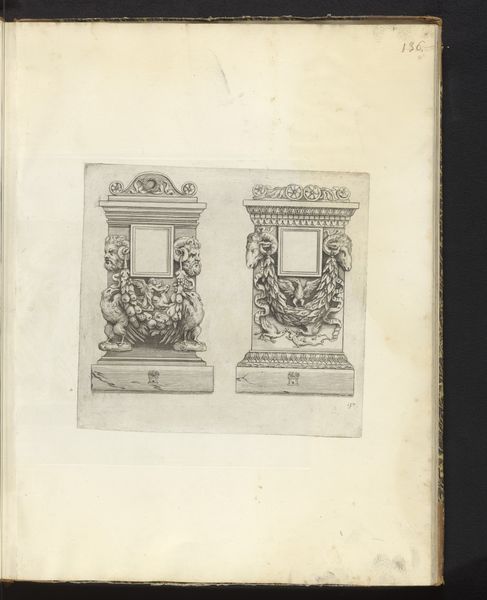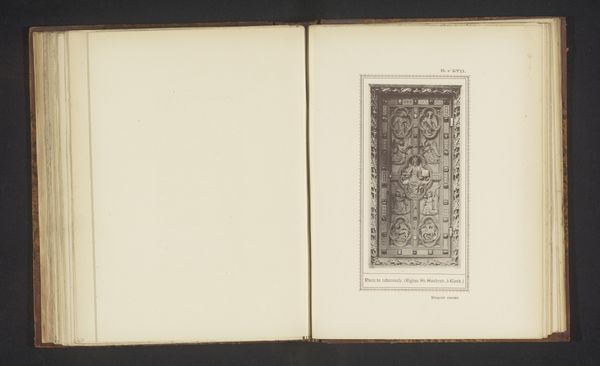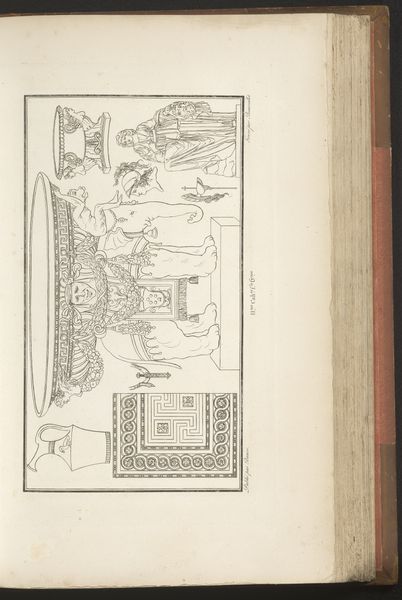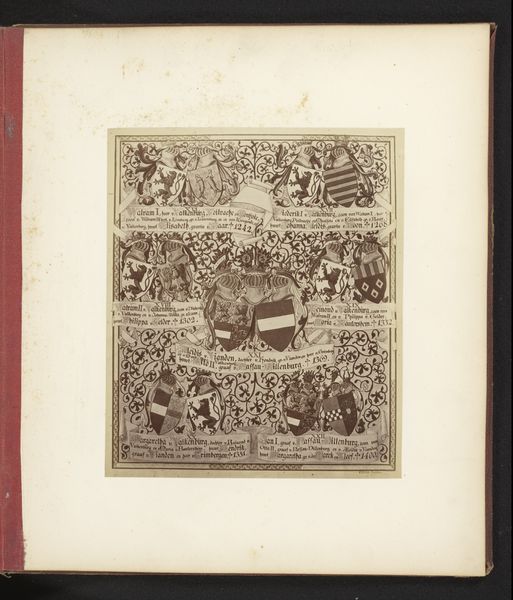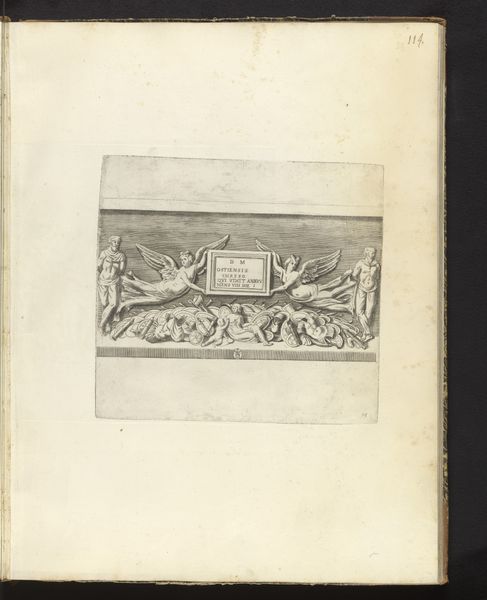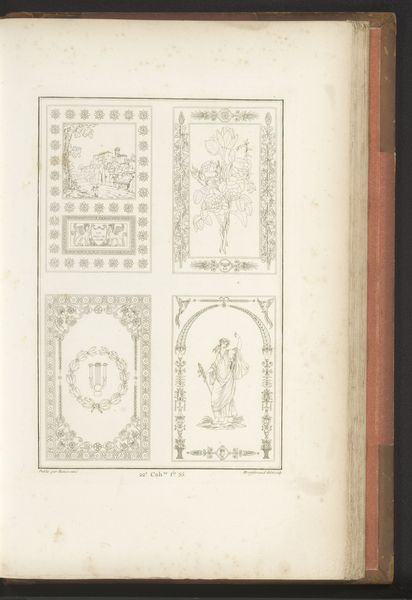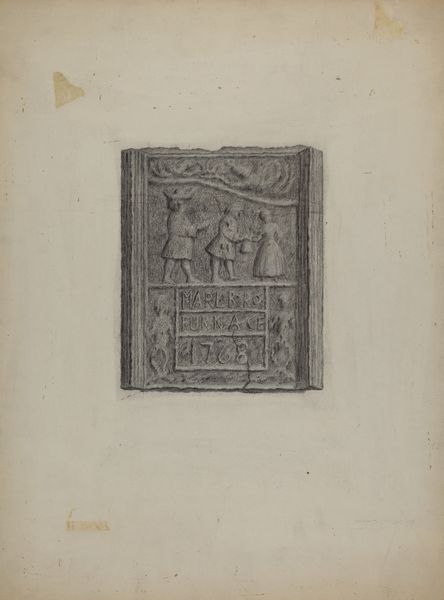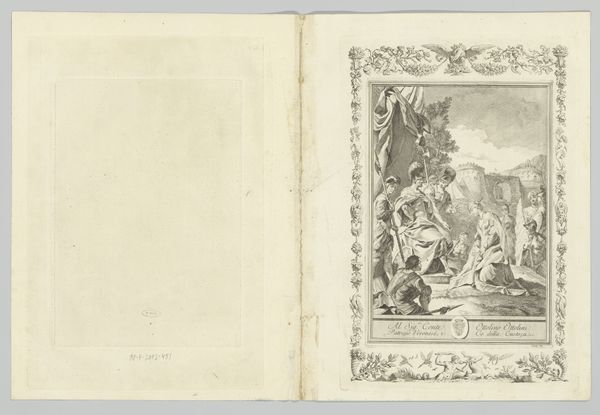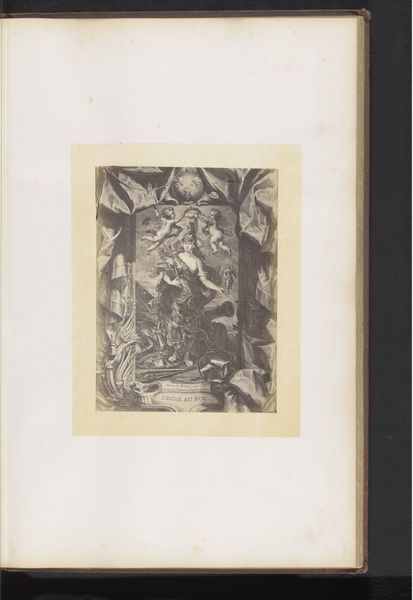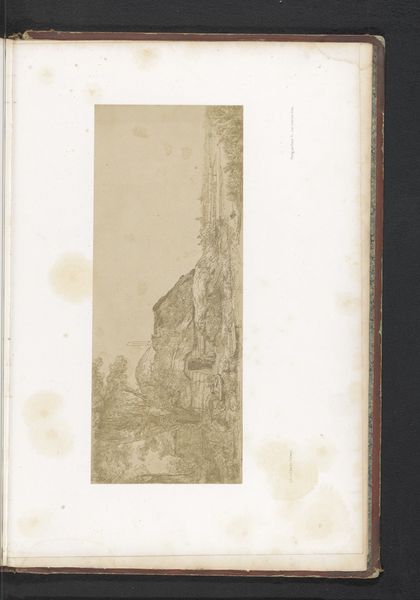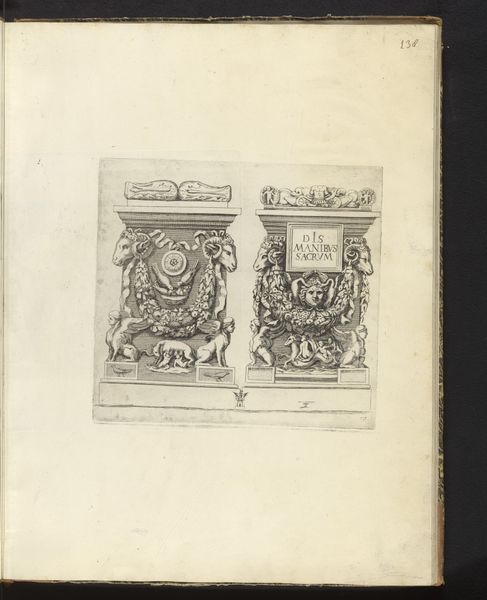
drawing, paper, pen
#
drawing
#
aged paper
#
toned paper
#
light pencil work
#
sketch book
#
figuration
#
paper
#
form
#
11_renaissance
#
personal sketchbook
#
pen-ink sketch
#
pen and pencil
#
sketchbook drawing
#
pen
#
storyboard and sketchbook work
#
academic-art
#
sketchbook art
Dimensions: height 242 mm, width 222 mm
Copyright: Rijks Museum: Open Domain
Curator: Welcome. Today, we're looking at a page from a sketchbook, entitled "Fragment van een fries met putto en bladornament." The artist is Ottavio Ora, and the piece dates from between 1636 and 1647. It's rendered in pen and pencil on paper. What strikes you initially? Editor: A yearning for antiquity! It's a bit faded, that creamy, aged paper, which lends a ghostly quality. The image itself? Classical but with this light touch. It's a fragment of something grander, almost like a half-remembered dream. Curator: Absolutely. The putto, that cherubic figure, embodies the innocence and playfulness so often associated with classical ideals. Placed beside foliate ornaments, the pair evoke ideas of fertility, nature's abundance, the golden age. And Ottavio Ora presents these universal allegories to us by studying the ancient forms through drawing. Editor: You see this yearning too, don’t you? The putto here seems a bit burdened though. Is it just me or does that dog, a noble hunting breed judging by its stance, seem to almost push against him as if to escape from that garland of acanthus leaves, towards...freedom? The poor tyke can't even properly grab ahold of the beast! Curator: It could be interpreted as the burdens that are a function of status. We observe through cultural memory that dogs accompany such childlike mythological characters as symbols of fealty, guardians but always present. Yet there remains something about his placement at the frieze apex with access to an endless source of foliate which makes the reading you propose possible but rather... ahistorical. Editor: Maybe. Or maybe Ottavio, wrestling with classical forms, intuitively infused it with a desire to break free. Who are we kidding? I'm just happy the angel-guy is rendered so nicely given the quality of paper and ink he had to use to study such a thing! Curator: That interplay is fascinating: How artists of any period inevitably interpret inherited forms, through their personal, societal lens. The technique here further reinforces that tension. Notice the fine, academic style in contrast to its informal function in an intimate sketchbook! It is a place where thoughts were recorded in freedom to allow new ones to develop. Editor: It gives the piece an immediacy. It feels like witnessing an idea taking shape. It certainly captures the magic inherent in the classical world with an innocent lightness. It becomes both timeless and fragile. Curator: A lovely tension between permanence and fleeting observation! Thank you, these insights unlock the rich symbolic texture here. Editor: Anytime. Now, if you'll excuse me, I'm off to sketch some dog-angels escaping their foliate prisons!
Comments
No comments
Be the first to comment and join the conversation on the ultimate creative platform.
